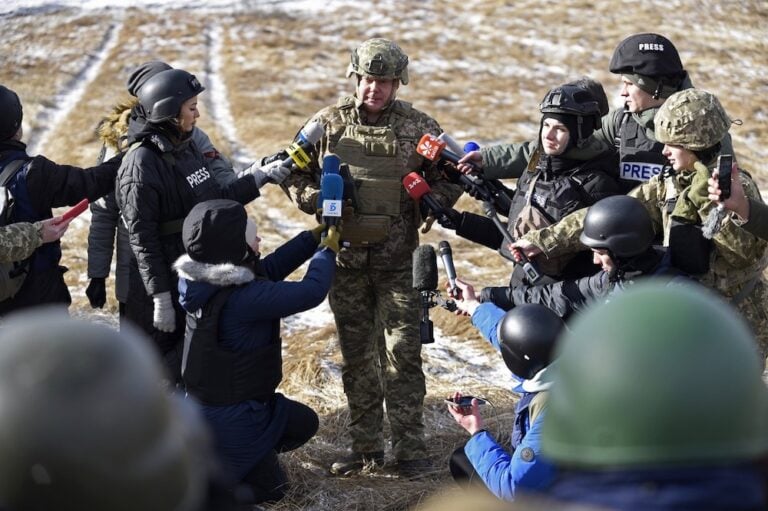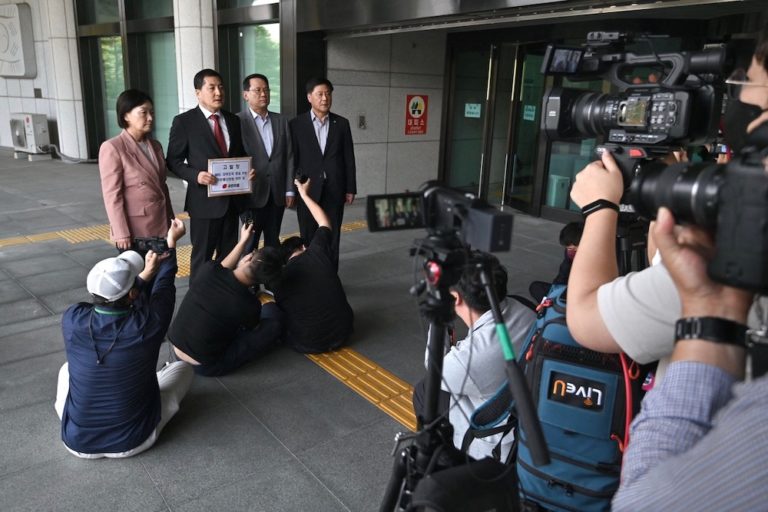(RSF/IFEX) – In a 21 June 2000 letter to the press officer and spokesman of the presidency, Park Joon-Young, RSF expressed concern about the sanctions imposed on journalist Kim Jin-Kook. RSF asked the official to ensure that the journalist could once again cover the activities of the head of state. Robert Ménard, the secretary-general of […]
(RSF/IFEX) – In a 21 June 2000 letter to the press officer and spokesman of the presidency, Park Joon-Young, RSF expressed concern about the sanctions imposed on journalist Kim Jin-Kook. RSF asked the official to ensure that the journalist could once again cover the activities of the head of state. Robert Ménard, the secretary-general of the press freedom organisation, reminded the authorities that “South Korean laws guarantee press freedom.”
According to information collected by RSF, on 20 June, the press department of the Blue House (South Korean presidency) banned Kim Jin-Kook, an accredited journalist with the daily “Joong-Ang Ilbo”, from official buildings. The authorities are reproaching him for writing an article titled “North Korea promised to change the Code of the Workers’ Party”, which stated that North Korean President Kim Jong-Il had promised his South Korean counterpart that some laws which regarded South Korea as an “enemy” would be changed. According to the authorities in Seoul, the report could jeopardise the inter-Korean dialogue and was given “off the record” by the National Intelligence Service during a press conference. Kim Jin-Kook maintains that the article was written by one of his colleagues before the conference.
Only seventeen South Korean journalists were authorised by the North Korean government to cover the meeting between Presidents Kim Jong-Il and Kim Dae-Jung in Pyongyang from 13 to 15 June. Reporters were kept under surveillance by North Korean security forces. According to Shi Yong Chon of the daily “The Herald”, who was in Pyongyang, some journalists were prevented from leaving their hotels. Accredited media finally agreed not to publish news which could upset the communist leaders and jeopardise the historic meeting – conditions which were imposed by Seoul authorities.


